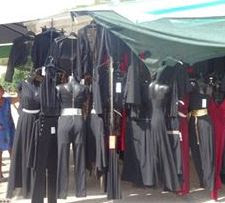Since being in that terrible car crash in France two years ago, I have mostly been living in a state of deep gratitude - just for being alive, for being well, for breathing. It has made life much easier, funnily enough, an unexpected result from what was a pretty dreadful experience, which ripped the arm off one of the drivers, and seriously disrupted the life of the other.
Expectations have so much influence on our experience. What we think will happen, how we react to what does happen.
I had expectations of what Sardinia would be like, and so far things have not panned out that way at all. We are staying for these first three nights in a tiny cabin at the back of someone’s garden. The space is adequate - but small. The view is over some dried brown pine-needle-scattered ground with trees (pine, pepper), and shrubs, and two large bright coloured plastic children’s play area things which are impossible to not see. It’s all cluttered and small and closed in. We wanted peace and quiet - but (as you know) the man next door has been working a big digger, the dogs call to each other all night, and the man on the other side started to work some sort of machine (strimmer? leaf-blower?) at the exact moment we sat down to start our quiet evening meal (for my birthday), on our little terrace (the only place with chairs….. I have had to wrestle with feelings of peevishness and discontent, not what I expected at all!
We went to the little market at Pula yesterday - and I had memories of the market I went to with my sister just a week or so ago, at Lectoure, where the English expats clearly provide a substantial income for the local economy, so things are set up to look a certain way. It has chic. The people from Guildford are all about. But at Pula it’s just what it says - a local market. No concessions for tourists. The goods on sale are very practical - duvets, lavatory brushes, very old-fashioned clothing including a whole stall selling clothes for widows, and then the usual local fruits and vegetables and some beautiful fish including a moray eel. One spectacular swordfish head was on display, and I took two photos of it, so the stall holder said that would be €5 for each photo. I said it was to promote the market on Facebook and he shrugged…. I clearly should have asked his permission first, a courtesy I had neglected. It was surprising how fast my Italian came back when I was challenged like that… not that I am anywhere near fluent! Just a few basic bits of vocab. Anyway, I asked the different stallholders after that before I took any more snaps.
The local landscape is not really very distinguished. There are some smallish mountains, covered in olive trees and scrub. The marsh-fields are burned brown from the summer heat. The only beasts we have seen were a flock of hundreds of sheep being brought down the hill by a middle-aged shepherd with two young dogs. Each sheep had its own bell, so the sound was magical, like Philip Glass.
We went to try to find the local nuraghi (ancient tower) but couldn’t find it, and drove along a coastal road for a way, past a communal park which gave a lovely belt of trees instead of the grazed and cropped and scorched hillsides further up. We found an abandoned stone building right by the sea, utterly ruined, covered in graffiti, with two round concrete water-tanks on the roof - I think it must have been a cafe once.
A solitary young man in bright clothing was walking with a strange gait, not looking at us, flopping along, taking his constitutional exercise all alone.
After a quiet afternoon at the Tiny House we went back to Pula to view the archaeological ruins at Nora. This is an ancient city, founded in about 800BC - Phoenician, Punic, Carthaginian, Roman, Christian… a succession of mighty cultures which took possession of this most beautifully located place - a headland with three huge bays stretching out into the divinely blue sea. Every one of these cultures blossomed and then vanished. Eventually the sea took back some of the area, so what is left is a wide spread of stone foundations, some columns and mosaics (all geometric), a smallish amphitheatre, forum, etc etc etc. It is quite easy to summon up thoughts of what it had been like to live there - any small Italian or French or Spanish seaside town would do - the little fishing boats, the markets, the smell of meals cooking with smoke rising from the fires, the children running errands, the cats and dogs…. All gone. I had never heard of this place till Tuesday.
We have to plan our route today - leaving here tomorrow and heading north. Mountains or sea? We can choose.
PS I forgot to say - I have an expectation that when I switch an electric light on, the room will become more illuminated. I had forgotten that Italians like to live in subterranean gloom. The lighting is basically dark. The lights are tiny, masked in shades of thick plastic or actually tree-trunk sections. It is VERY hard to see anything inside.









No comments:
Post a Comment